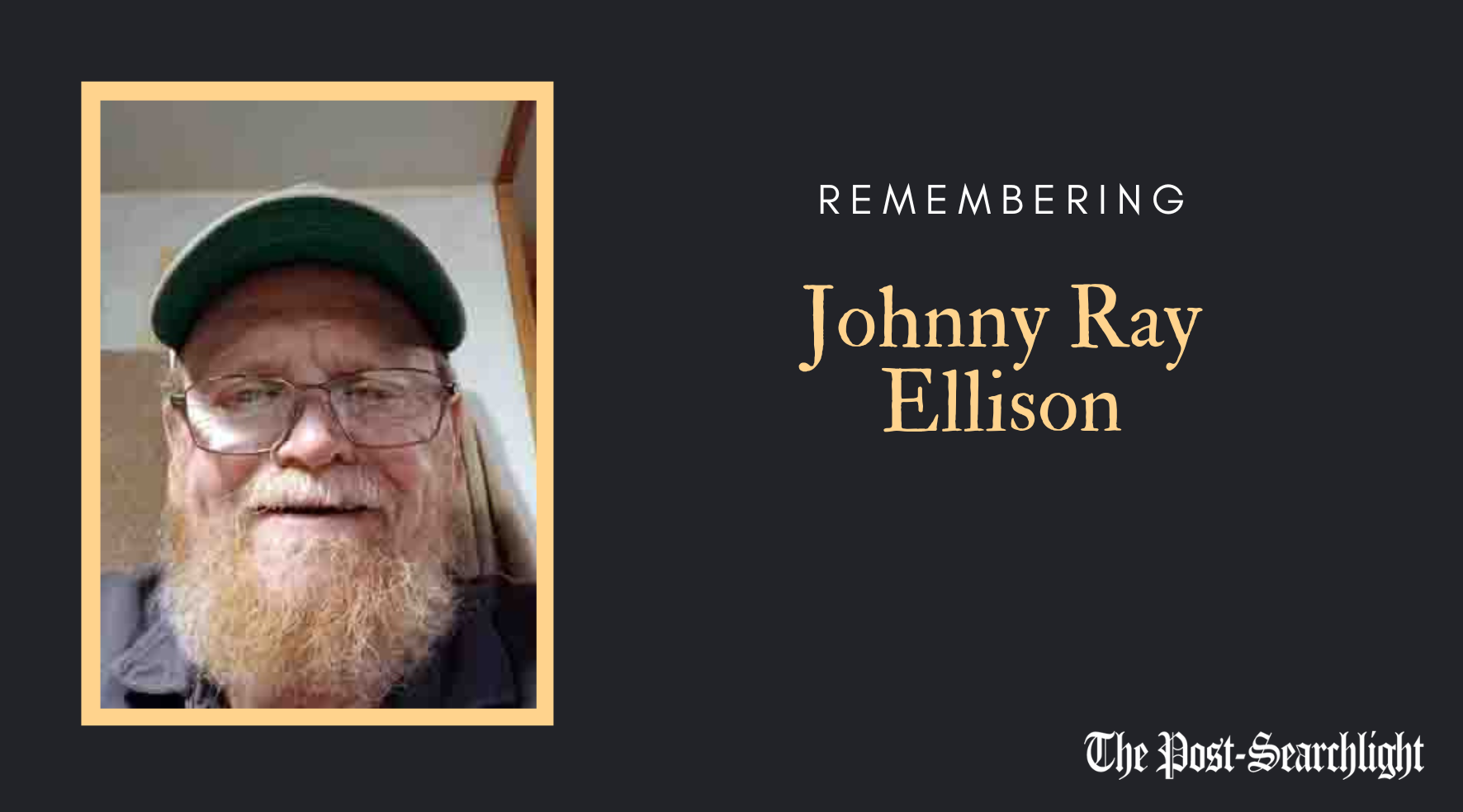Bainbridge City Council hears water line survey results, complaints over rezoning issue, and more
Published 6:32 pm Monday, November 25, 2024
|
Getting your Trinity Audio player ready...
|
The Bainbridge City Council met for their monthly meeting last Tuesday night. Following the invocation, Pledge of Allegiance, and approval of the previous meeting’s minutes, the council heard from members of the public. Resident Yvena Merrit took to the podium first, to address the council about the legal cases surrounding Safer Human Medicine. Merrit raised issue with previous statements made by city officials regarding the project.
“On January 16, 2024, at 6:30, during a meeting presided over by you, Mayor Edward Reynolds, in front of a full house, you made a clear statement,” Merrit said, “and I quote, that the city had nothing to do with Safer Human Medicine or Project Liberty coming to Bainbridge.” Merritt called this “an outright fib”, pointing to former city manager Chris Hobby’s heavy involvement in the project, and argued that she felt the city was not fighting the project, despite statements otherwise.
“Many believe you have done everything possible to shield us from issues like Safer Human Medicine, but I do not,” Merrit said.
Trending
Following Merrit’s speech, another resident, Emma Reese, spoke to the council, raising a complaint about being denied setting up an insurance/tax business in a residential zone. She stated that she had previously spoken at the last council meeting, and clarified that she had been told from the beginning her request would be denied.
“I acknowledge the fact that I was denied, but I knew I was going to be denied, because Mr. Steve told me from the beginning I was going to be denied, and I respect that,” she said, referring to Director of Community and Economic Development Steve O’Neil. She went on to argue that other business owners were allowed to use their residential property for business, claiming she was told they were “grandfathered in”. She went on to make allegations that this decision was racially motivated, and presented letters and support from the community to the council.
After the public participation, the first item of new business was consideration of a resolution to add a First Responder PTSD Program to the city’s GIRMA insurance plan. According to city manager Roy Oliver, “This is a mandated requirement under the provisions of House Bill 451, which requires all local governments to include this coverage.” The total cost, he stated, is $7,450 annually. The city adopted the resolution.
Next, the council heard consideration for the sale of property, specifically a 7.45 acre tract that was split from a tract the city purchased from the Atlanta Structural Company. The whole 22-acre tract is the location of the city’s water, sewer and natural gas departments, which will remain operational on the remaining acres. The tract has been purchased by Hildron Development and Construction at a price of $10,000 per acre, for a total price of $74,500. The council voted to approve the sale.
Steve O’Neil took to the podium next, bringing forward a housing study. According to O’Neil, as part of the study, it was determined that the city should apply for a CHIP grant.
“This is something that we’ve never done as a city, but I think it’s time that we need to consider it,” he said. Part of the application process, he said, and for the city to get “bonus points”, the city would need to officially adopt the housing study by a resolution. The grant would be $500,000 for housing rehab, for owner-occupied homes; these owners, O’Neil said, “have to meet certain income criteria set by DCA, and this is typically considered low to moderate income home-owners.”
Trending
There was some discussion amongst attending citizens and the council about the study, with the council ultimately adopting the study, and authorizing O’Neil to apply for the grant.
The next item of business on the agenda was the introduction of an amendment to the city’s cemetery ordinance. O’Neil presented this as well. The proposed changes would incorporate all of the city-owned cemeteries into the ordinance, which had previously only applied to Oak City Cemetery.
“Our intention with the proposed changes… is to incorporate all of the city-owned cemeteries, and we’ve developed the language to have one master account, and sub-accounts for each individual city-owned cemetery underneath it,” he explained. “This way donors can donate to the general trust, or they can donate to a particular cemetery of their choosing.”
One citizen came forward to ask a few questions about the issue, contending that the upkeep between Oak City Cemetery and Jonas Lobe Cemetery was “not fair”. “You go out there, sometimes the grass is mowed, sometimes it’s not mowed,” he said. Mayor Reynolds stated that he would “certainly take a look at it.”
This was merely an introduction of the amendment; the city will hold a public hearing and make a decision on adoption at next month’s meeting.
Next, O’Neil spoke about recommendations from the Planning Commission. The only recommendation was the denial of rezoning previously brought up by Emma Reese.
“The planning commission voted to deny her request to rezone the property based on the fact that they felt it was a clear case of spot zoning,” O’Neil said, “and that vote was unanimous.”
Reese returned to the podium to respond. “Not only did they say that,” she said, “but Mr. Steve brought to the planning committee that he didn’t see how my business would enhance the community. So I would like to say, there’s a liquor store on the corner, how does that liquor store enhance Sims Street?”
She continued to argue that the denial was racist in nature as well.
Councilwoman Glennie Bench raised a question about spot zoning. “The issue of spot zoning, I’m not aware of us issuing any zoning changes where it’s an isolated change surrounded by residential,” she said. “I’m sure it has happened in years past, decades past, but I’m not aware of us having done that any time, that I know of.”
O’Neil clarified about spot zoning, saying, “Spot zoning is when what is being presented, like you described, is different than the surrounding, but at the same time, it doesn’t fulfill or enhance the public purpose.” He continued, “Like if there’s some goal in our comprehensive plan that it furthers, it might be allowed. This does not.”
Councilman Kregg Close also spoke, stating that he spoke to residents in the area, stating that they felt intimidated and fearful of retaliation for voicing their opinion, and that they did not have an issue with an insurance or tax business. Close also stated that the city has approved conditional use permits for businesses.
“In that area, what puzzled me the most, by surveying that area and talking to those people, was more disturbing to me,” Close said, “was they felt like the city, and the authorities of the city, have put them in the position to be afraid to do things… they feel like ‘If we go we’re gonna be denied, if we try to achieve something, we’re going to be turned away.’ And I don’t think that’s what the city of Bainbridge is about.”
O’Neil stated that he didn’t tell Reese her zoning request would be denied; “I never do that,” he said, “because I don’t make that decision. What she did do is apply for a home occupation, first, at 104 Sims, but given the nature of what she’s proposing, I can’t allow it at 104 Sims. One, because she already had a home occupation at 1115 Broughton; two, I couldn’t allow it because we don’t allow home occupations where you have customers coming to the house.”
Councilwoman Bench spoke up, speaking to the conditional use angle mentioned by Councilman Close. “An insurance office or a tax office or any of those types of businesses are not allowed as a conditional use in a residential area,” she said. “It would require it to be completely rezoned as commercial, then once it’s rezoned as commercial, you can’t restrict what the business is.”
O’Neil added that Reese, after the denial of the home occupation, “filled out a rezoning application, threw it down on the desk and walked out.” “We never got a chance to sit down and discuss the likelihood of this, or just talking further,” he said.
Reese would go on to assert that she had never been to O’Neil’s office and the interaction with the application was not how O’Neil described it, calling him a liar.
After some further discussion between the council and Reese, the council ultimately voted to approve the planning commission’s denial recommendation, with Councilman Close opposing.
The next business item on the agenda was approval of an employee Christmas incentive. Employees will receive a $200 gift card; the total cost for all 177 eligible employees, the total cost comes out to $35,400.
Next, the council heard consideration for an alcoholic beverage license, specifically for a Mr. Patel at 1105 Dothan Road. The council voted to approve the application.
Next, the city voted to reappoint Melinda Taylor and Shae Brouillet to the Downtown Development Authority.
After this, O’Neil returned to deliver an update on the EPA-mandated water-line survey. He went into detail about recent revisions to the EPA guidelines aimed at keeping track of lead and copper in water service lines, on both the city and customer’s ends. This required a service line inventory. According to O’Neil, there was no lead found in the line system, but there were some galvanized lines requiring some replacement, as well as some “unknowns”; specifically, 2,644 lines were galvanized and requiring replacement, 3,279 were non-lead lines, and 131 are still unknown. O’Neil added that the deadline for required service line replacements isn’t until 2037, giving the city time to develop a plan. City engineer Gabe Menendez followed, briefly discussing the water testing.
“The first thing I want to open up with is: our drinking water is safe,” he said. “We do that on an annual report… we are well below the thresholds for the lead, and we’re well below the thresholds as they sit today for the copper.” The threshold, he stated, was 15 parts per billion, with the highest the city got being 5.2 ppb in 2022. As for the lines requiring replacement, he said, “This is not gonna be cheap, it’s gonna be something that’s gonna require some funding, hopefully some grant money will come with it as well.”
On the private side, the customer/homeowner is responsible for replacing their line, while the city is responsible for replacing public lines.
Lastly, the city considered two bids; the first, a bid of $29,260 from Lewis Steel Works for four- and eight-yard dumpsters, had been approved by phone in October by council members Washington, Whaley, Adams and Close. The second bid was $438,450 for ten new model public safety vehicles, with Franklin’s Spring Creek Ford offering the bid. The council voted to approve the bids.
Following this, the meeting was adjourned.






